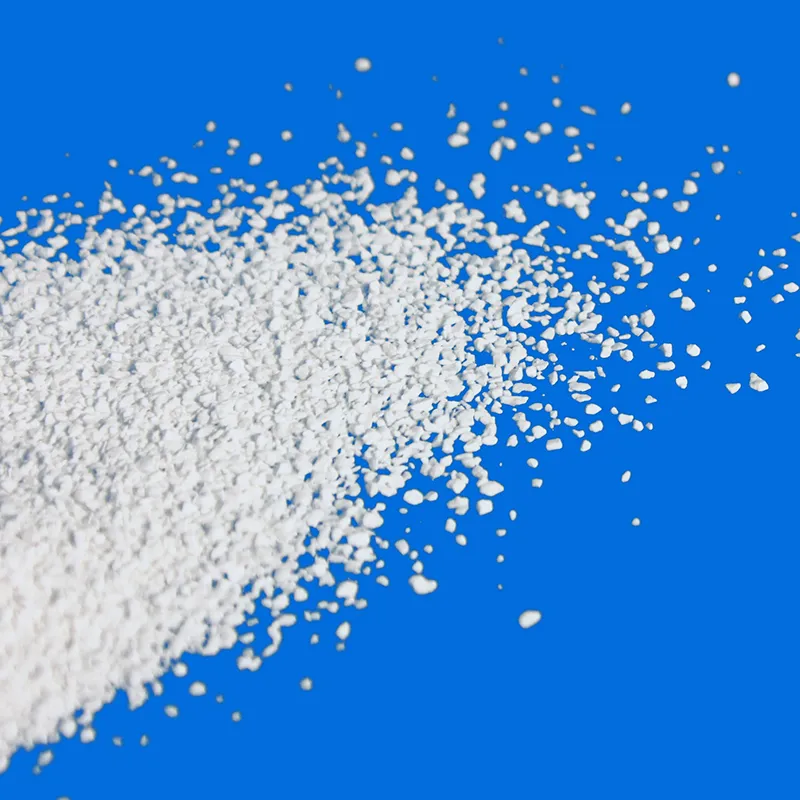
Exploring the Benefits and Uses of E950 Sweetener in Modern Diets
Understanding E950 Sweetener A Comprehensive Overview
E950, commonly recognized as Acesulfame Potassium (Ace-K), is an artificial sweetener that has gained popularity in the food and beverage industry due to its intense sweetness and calorie-free nature. This compound is often used to enhance flavor profiles in various products, making it a staple ingredient in sugar-free and low-calorie alternatives. It is essential to delve deeper into what E950 is, its uses, safety, and the ongoing discussions surrounding its consumption.
What is E950?
Acesulfame Potassium is a synthetic sweetener that is approximately 200 times sweeter than sucrose (table sugar). It is non-nutritive, meaning it contains no calories, which makes it an appealing choice for those looking to reduce caloric intake without sacrificing sweetness in their diet. The compound is often mixed with other sweeteners, such as aspartame or sucralose, to create a more sugar-like taste profile and to mask any bitter aftertaste that may arise from artificial sweeteners.
Common Uses
E950 is widely utilized in a variety of products, including soft drinks, chewing gums, desserts, dairy products, and even pharmaceuticals. Its stability under heat makes it suitable for baked goods as well, where it can effectively replace sugar without compromising the flavor or texture of the final product. Furthermore, its ability to maintain sweetness over a longer shelf life contributes to its appeal for manufacturers.
e 950 sweetener

Safety and Regulatory Status
The safety of Acesulfame Potassium has been a subject of extensive research and debate. It was first approved for use in the United States by the Food and Drug Administration (FDA) in 1988, after numerous studies affirmed its safety for human consumption. The European Food Safety Authority (EFSA) and the World Health Organization (WHO) have also recognized E950 as safe, establishing an acceptable daily intake (ADI) to guide consumption levels. However, some studies have raised concerns about potential links to health issues, prompting ongoing research and discussions in the scientific community.
The Controversy Surrounding Artificial Sweeteners
The use of artificial sweeteners, including Acesulfame Potassium, is often debated. Supporters argue that these sweeteners can assist with weight management and diabetes control by providing sweetness without calories. Critics, however, raise concerns about potential health risks, suggesting that long-term consumption may lead to metabolic changes or cravings for sweet foods, undermining dietary goals. It is crucial for consumers to stay informed and consult health professionals when considering the inclusion of E950 or any artificial sweetener in their diets.
Conclusion
As the demand for low-calorie and sugar-free products continues to rise, E950 (Acesulfame Potassium) remains a significant player in the sweetener market. Understanding its properties, uses, and safety considerations is essential for consumers navigating their dietary choices. While the scientific consensus supports its safety, ongoing research will continue to shape the future of E950 and its role in our food supply. As always, making informed decisions while maintaining a balanced diet is vital to achieving overall health and wellness.
-
Pure Sodium Dichloroisocyanurate Dihydrate | Powerful DisinfectantNewsAug.29,2025
-
Industrial Chemicals: Quality & Purity for Every IndustryNewsAug.28,2025
-
Nitrile Rubber Honoring Strict Production StandardsNewsAug.22,2025
-
Aspartame Ingredients Honoring Food Safety ValuesNewsAug.22,2025
-
Fertilizer for Balanced Plant NutritionNewsAug.22,2025
-
Cyanide Gold Processing with High Purity AdditivesNewsAug.22,2025
-
Formic Acid in Textile Dyeing ApplicationsNewsAug.22,2025
Hebei Tenger Chemical Technology Co., Ltd. focuses on the chemical industry and is committed to the export service of chemical raw materials.
-

view more DiethanolisopropanolamineIn the ever-growing field of chemical solutions, diethanolisopropanolamine (DEIPA) stands out as a versatile and important compound. Due to its unique chemical structure and properties, DEIPA is of interest to various industries including construction, personal care, and agriculture. -

view more TriisopropanolamineTriisopropanolamine (TIPA) alkanol amine substance, is a kind of alcohol amine compound with amino and alcohol hydroxyl, and because of its molecules contains both amino and hydroxyl. -

view more Tetramethyl Thiuram DisulfideTetramethyl thiuram disulfide, also known as TMTD, is a white to light-yellow powder with a distinct sulfur-like odor. It is soluble in organic solvents such as benzene, acetone, and ethyl acetate, making it highly versatile for use in different formulations. TMTD is known for its excellent vulcanization acceleration properties, which makes it a key ingredient in the production of rubber products. Additionally, it acts as an effective fungicide and bactericide, making it valuable in agricultural applications. Its high purity and stability ensure consistent performance, making it a preferred choice for manufacturers across various industries.





